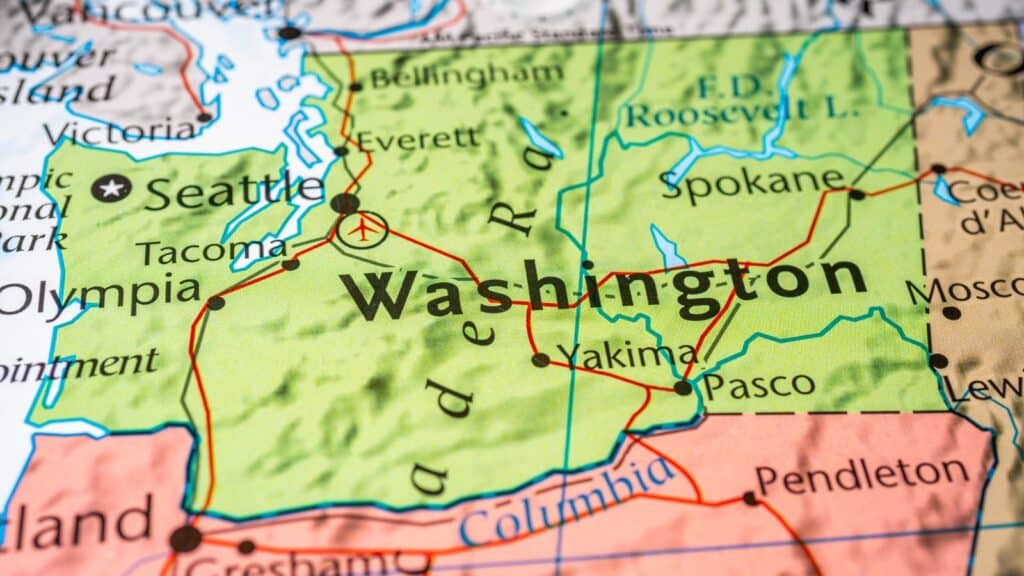Across America, there are specific places where the local government can actually step in and take someone’s firearms. These laws are called “red flag” laws, and they only apply if someone might hurt themselves or others. Here are 25 states where they can do that, and the low down on what the laws involve.
California

Out in sunny California, they’ve got something called Gun Violence Restraining Orders. If someone’s family or the cops think a person could be a danger with a gun, they can ask a judge to seize that person’s firearms. Supporters of this law believe it could help to stop trouble before it even starts.
New York

New York’s also pretty serious about keeping things safe with their Extreme Risk Protection Orders. These let teachers or the police ask a court to keep guns away from someone who could cause harm. If there’s a real concern that someone could go off the rails, these orders will make sure guns aren’t part of the equation.
Florida

After a tragic school shooting in 2018, Florida decided it was time to step up, and they introduced Risk Protection Orders. These allow the police to take guns away from someone who might be a danger, and they can hold onto them for up to a year. The laws are meant to give the community some peace of mind.
Illinois

If you’re worried about someone who might be on the edge in Illinois, you can ask for a Firearms Restraining Order. It keeps guns out of the hands of anyone who might use them the wrong way, at least until things calm down. The government can only keep them for a maximum of 6 months.
Colorado

In Colorado, anyone who’s acting out and seems like they could be a threat might have their guns taken from them. But only family members or the cops can ask the courts to do this, which is meant to stop bad things happening before they start. The state can keep these firearms for up to a year.
Indiana

Unlike some other states, Indiana has a quick-action law called the Jake Laird Law. If the police think someone’s in real and immediate danger, they can take their guns right away without waiting for a judge to give them approval. This law is meant to help the community to avoid harm in the heat of the moment.
New Jersey

Like other states, New Jersey also uses Extreme Risk Protection Orders, which allow the government to seize firearms. But unlike other places, there’s no maximum time limit for how long they can hold them. So, if they really think someone’s in danger, the government can hold onto someone’s guns forever.
Oregon

Over in Oregon, you can also ask for an Extreme Risk Protection Order if you’re really worried about someone’s mental state and their gun access. The government can take them for a minimum of 21 days and a maximum of a year. They’re also allowed to take someone’s guns if they’ve been convicted of domestic violence.
Washington

In Washington State, the community voted to allow judges to issue orders to temporarily take people’s guns, but only if these people are dangerous. If someone makes an emergency call because of a domestic violence issue, the police must take away some of the firearms on the property, if any. They can keep them for no more than a year.
Hawaii

Hawaii handles things a little bit differently. If someone’s having a severe mental health crisis, the police can take their guns to stop them from hurting themselves or others during their evaluation. But there’s no law saying they can take someone’s guns if they’ve been convicted of domestic violence.
Maryland

In Maryland, both family members and certain professionals, like therapists or doctors, can ask a court to stop a dangerous person from having guns. The court has to go through a lengthy review process and they’ve got to justify seizing guns with clear evidence of risk. It’s meant to protect the community and people’s gun rights.
Connecticut

Back in 1999, Connecticut was one of the first states to create risk warrant laws. This process includes giving evidence to a judge, who then decides whether to issue an order. It actually inspired similar laws in other states, like Maryland, and the government can hold onto the guns until the person’s not a risk anymore.
Nevada

There have been some recent changes to the laws in Nevada, which allow courts to issue orders to hold onto someone’s firearms if they’re seen as a threat. A court can only issue these orders if the police or family have made a petition. They’ve got to prove that the person is a threat and why it’s concerning.
Vermont

In Vermont, if the courts decide you’re a danger, they can take your guns for a minimum of 2 weeks, while the maximum time is six months. But the laws over domestic violence and firearms aren’t as strong, as there’s no law saying the government has to take your firearms if you’ve been convicted. They also don’t have to take anyone’s guns during a domestic violence emergency call, but they can if they want to.
New Mexico

In New Mexico, the police or family members can ask for an Extreme Risk Protection Order if they’re worried about someone’s state of mind. The court will have a detailed hearing and decide if they need to restrict this person’s access to firearms. If they approve the request, the government can hold onto this person’s guns for a maximum of a year.
Pennsylvania

At the moment, there are no red flag laws in Pennsylvania, but government officials are debating whether there should be. They’re trying to understand how family members or police can ask to temporarily store someone’s firearms. The main goal? To create laws that’ll protect people’s rights and the community as a whole.
Virginia

Virginia recently rolled out new rules that allow people to quickly ask for a court order to remove guns from someone who might be a danger. It doesn’t matter if it’s family or the cops making the call because they’ve got to show solid proof of a risk. The government can keep these firearms for no longer than six months.
Tennessee

In Tennessee, there are no laws allowing either courts or the cops to remove someone’s guns if they’re a threat. But state officials have introduced several bills to do this, like Senate Bill 1807, although these haven’t been passed. Following a school shooting in 2023, more people have been pushing for these laws.
Rhode Island

Rhode Island’s laws allow police to make snap decisions to remove someone’s guns if the situation is urgent enough. If there’s a clear and present danger, officers can immediately take these guns to protect the community. These laws only came about in 2018 after several other states did the same thing.
Delaware

Like in many other states, in Delaware, the decision to temporarily take someone’s firearms is up to the court. This way, guns can only be taken if it’s absolutely necessary and there’s enough evidence to support this claim. If the order is approved, the government has to take these guns for at least 15 days.
Massachusetts

In Massachusetts, if someone’s family is concerned about their behavior, they can use the courts to get involved. They can petition for the court to temporarily restrict their access to firearms to cool down any potentially explosive situations. This law came about after the deadly 2018 Parkland high school shooting.
Maine

Maine’s laws are mainly focused on mental health issues over crime. Here, prosecutors and police can ask a court to take someone’s weapons if they’re a risk, but only after the person’s had an assessment from a medical professional. It’s not as strict as other “red flag” laws, which is why some people call it a “yellow flag” one.
Alaska

Currently, there are no red flag laws in Alaska, but some state officials are taking steps to introduce them. In February 2024, they introduced Senate Bill 229 to create red flag laws, although they’re still under debate. According to one report, Alaska has some of the highest gun deaths in America.
Arizona

Arizona’s approach to red flag laws has been on and off. The government did introduce a red flag bill, but the Arizona Legislature defeated this. Then, another governor introduced the bill again after a wave of mass shootings in 2019, though he later changed his mind and said he wouldn’t allow any red flag laws to pass.
Minnesota

Minnesota’s one of the more recent states to introduce a red flag law, as they only passed it in 2023. The government can take someone’s guns for a minimum of 14 days and no more than a year. According to one poll, around 64% of Minnesotans supported the idea of a red flag law, though they disagreed on the specifics.
19 Grim Realities of Dating After 50 That Are Often Overlooked

19 Grim Realities of Dating After 50 That Are Often Overlooked
26 Things That Will Be Extinct Because Millennials Refuse to Buy Them

26 Things That Will Be Extinct Because Millennials Refuse to Buy Them
24 Outdated Slang Terms You Absolutely Shouldn’t Be Using Anymore

24 Outdated Slang Terms You Absolutely Shouldn’t Be Using Anymore
25 Hardest Parts About Getting Older That No One Ever Talks About

25 Hardest Parts About Getting Older That No One Ever Talks About




